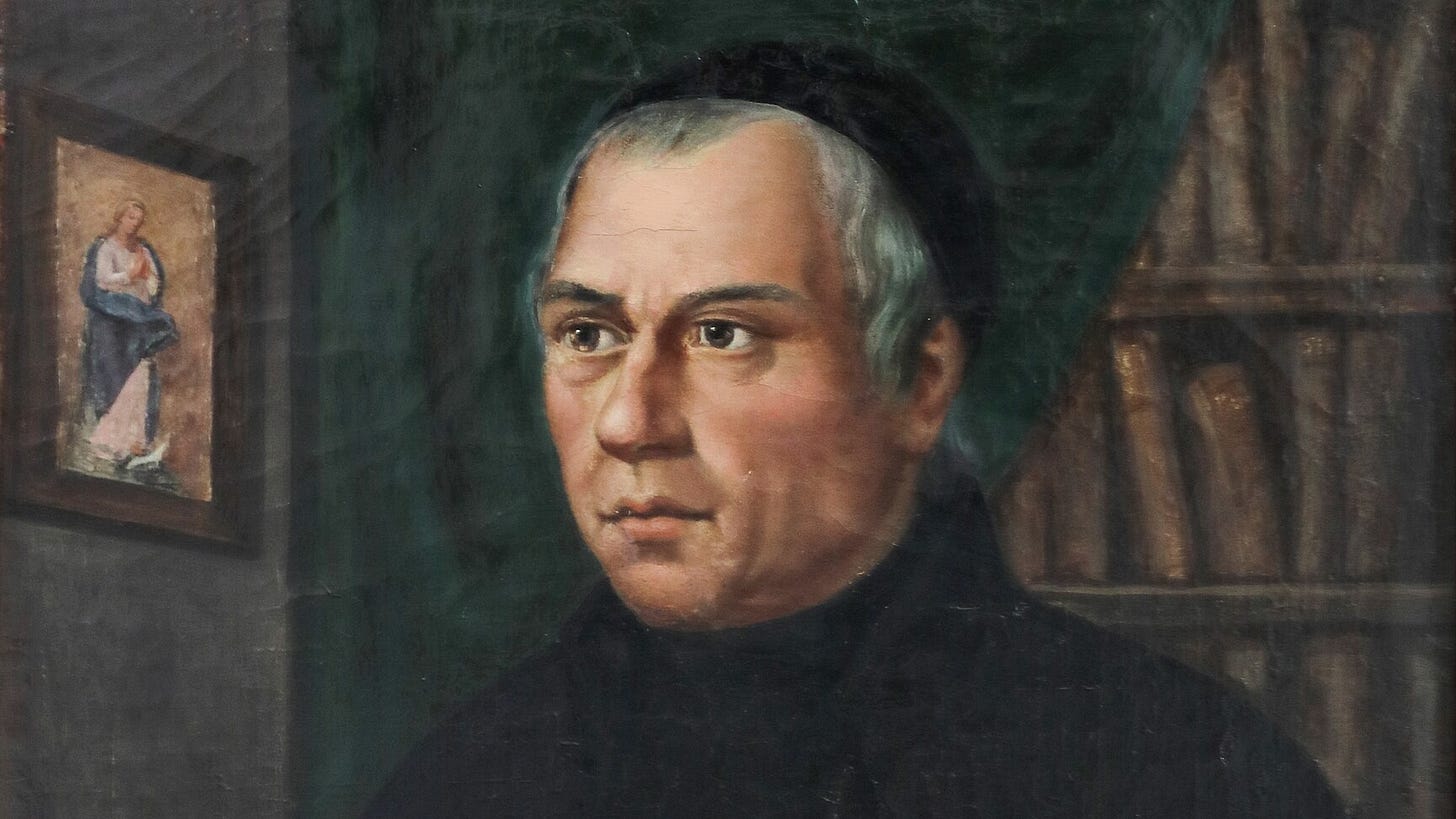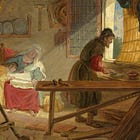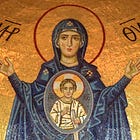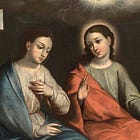What solitary mission priests teach us about the Incarnation
They stand as Our Lady stood after the Annunciation—alone in the hidden presence of God. They call us to join them before him.

They stand as Our Lady stood after the Annunciation—alone in the hidden presence of God. They call us to join them before him.
Although most traditionalist Catholic priests live in small communities or priories, this will not always be the case for all.
Sometimes, such solitary priests may even live in very remote areas, away from members of their own priestly orders, and even from those of other orders.
No doubt this can be difficult at times, and perhaps even lonely.
In this piece, Father Coleridge reflects on the profound parallels between these solitary mission priests and the Blessed Virgin Mary at the Annunciation.
He shows us that the work of these priests, and even more the Annunciation itself, call for awe at God’s condescension and for fidelity to His hidden presence among us.
Not to mention gratitude to God himself, and Our Lady, and these priests.
The Life of Our Lord in the Womb
From
The Nine Months: The Life of Our Lord in the Womb
Fr Henry James Coleridge, 1885, Chapter VII, pp 119-22.
God made an infant
One great Divine reason for the immense addition of graces and spiritual gifts which we believe to have been bestowed upon our Blessed Lady immediately after the Incarnation must be found in the new position in which she was placed to our Lord as His Mother.
This relation included a great variety of duties and opportunities, and on these we do not propose to linger in the present chapter. There is one most important element in this new position which should not be left unmentioned from the very first.
The change which had taken place in the world was infinite in its intrinsic wonderfulness and also in the duties which it imposed on the whole of Creation. God had become a creature. The material universe had now in its midst its Lord and Sovereign, not as He had always been in every part of the world which He had made, but in a new mode of existence, and that a human mode.
He had made Himself an Infant. He was still, and could never fail to be, the Lord and God of all, but He was now present among His creatures as one of them. He had thrown Himself upon them, leaving the throne and the glory and the majesty and the endless worship of Heaven behind Him, and He made Himself dependent on them for the homage and honour due to Him.
Analogy to the Blessed Sacrament
It sometimes happens in a land like our own, that a lonely priest begins a humble mission in some upper room, or in the kitchen of a cottage which he has hired.
He is sent in the hope that he may gather around him some few poor peasants, the workmen on a railway, or the toilers in a factory.
He has no home but that which he is obliged to use also for the time as his temporary chapel, and in the safest and loneliest spot in the little dwelling, he raises a poor altar. He does his best for its decoration.
Some poor servants help him with their savings, he is able to set apart altogether the small but decent room in which the altar is raised, and there, some morning, he has the happiness, not only of celebrating the Adorable Sacrifice but of consecrating a few hosts and enshrining the ciborium which contains them in a modest tabernacle.
There, for the first time since the change of religion, the Blessed Sacrament is reserved in that village or suburb. God has come to make His dwelling among men.
The secret worshipers
The world around knows nothing of its Neighbour.
No one suspects that in that little upstairs sanctuary is dwelling the God of gods, and Lord of lords. The house is the same as before, the village is the same as before, men come and go, and pass and chat, it may be offend the Divine Majesty within a few yards of His abode, it may be they lift up their hearts to Him, resist some temptation, or practise some simple charity, or refrain their tongue from evil words and their eyes from licentious looks, close by Him.
But all the time the good and the bad alike know nothing of His nearness; they think nothing of the choirs of Angels hovering around, giving to their King and Lord their homage all the more devotedly for the very reason that earth seems to know nothing of Him.
That priest and the few followers of the Faith who are in the secret feel in their hearts an immense light and happiness indeed, but also an immense weight of responsibility. They are in trust for the whole neighbourhood around, to show honour to the hidden King. If they fail Him, they do so advisedly and knowingly, and they feel that on their faithfulness may depend the issue, whether the boon of His presence is to be continued to their homes and their neighbours, or whether it is to be taken away again, never to return.
Mary’s office
Such in kind, though far greater in degree and intensity, must have been the feelings of the Blessed Mother of God at once, after the Incarnation.
Mary understood what had taken place as no one else could understand the condescension of God. She knew His worth and rights, as no one among the highest seraphs knew them. She knew what was the blessing of His presence, and what the dues to His Majesty.
But He was her own. No ordinary presence, even as of the Blessed Sacrament in the tabernacle, was that in which He dwelt in her. He had taken His Flesh and His Blood from her substance. He lived by her life. He was sustained in His human existence by her. She was nearer to Him than the priest who offers Him on the Altar, nearer to Him than the Angels who kneel in adoration wherever He is to be found; Flesh of her flesh, Bone of her bone.
And He was her own in the other sense, which involves so infinite a trust, so limitless a responsibility. She alone knew of Him. She alone was to discharge the duties of the whole visible creation in honour of Him, thanking Him, adoring Him, praising Him, loving Him for His condescension.
If we can suppose Heaven emptied of its citizens, and one Angel alone left to adore the Divine Presence of the Ever-Blessed Trinity, we might compare that Angel's thoughts with those of Mary.
From From Fr Henry James Coleridge, The Nine Months, pp 119-22.
Here’s why you should subscribe to The Father Coleridge Reader and share with others:
Fr Coleridge provides solid explanations of the entirety of the Gospel
His work is full of doctrine and piety, and is highly credible
He gives a clear trajectory of the life of Christ, its drama and all its stages—increasing our appreciation and admiration for the God-Man.
If more Catholics knew about works like Coleridge’s, then other works based on sentimentality and dubious private revelations would be much less attractive.
But sourcing and curating the texts, cleaning up scans, and editing them for online reading is a labour of love, and takes a lot of time.
Will you lend us a hand and hit subscribe?
Read next:
Follow our projects on Twitter, YouTube and Telegram:







